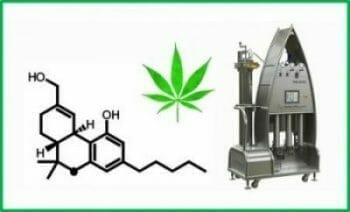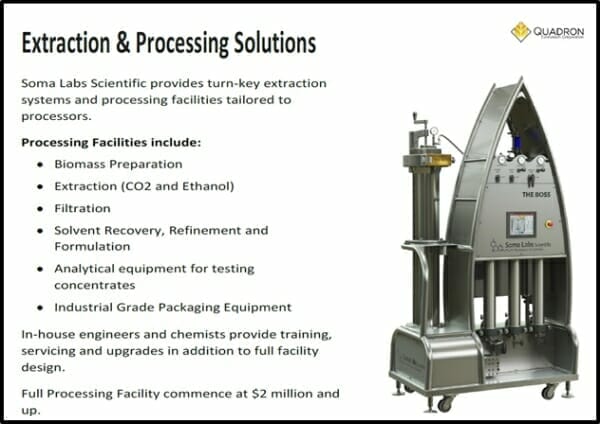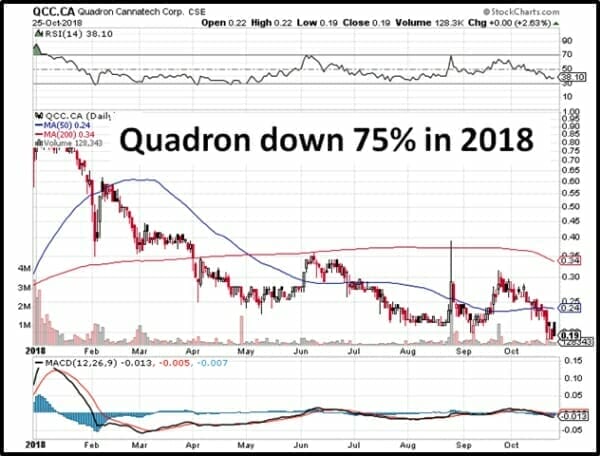Cannabinoid (CBD) is a non-psychoactive isomer of THC.
When, a few years ago, it was first claimed that cannabidiol could reduce seizures in children with Dravet Syndrome (a type of kid’s epilepsy) two things happened:
- Parents of these children became very pro-active.
- The medical community expressed profound skepticism.
My nephew had child epilepsy. If you’ve watched a 2 ½-foot-high kid get his brain wires cut – go into spasm – struggle to breathe – you’ll understand the desperation of the parents, wanting to believe in CBD.
Then Orrin Devinsky, Director of NYU Comprehensive Epilepsy Center ran a CBD clinical trial which determined that the median number of seizures went from 12 per month to just under 6 compared with placebo.
“This new trial provides more evidence than we have ever had of cannabidiol’s effectiveness as medication for treatment-resistant epilepsy,” stated Devinsky.
CBD is now used to treat Dravet Syndrome and is sold as a treatment for a wide range of medical conditions and diseases.
On October 25, 2018 Quadron Cannatech (QCC.C) announced that it has signed a binding Letter of Intent (L.O.I) with Genetic Properties (GPI). Together, they plan to make oils, including CBD.
According to QCC’s corporate literature: “Quadron provides equipment, products and service solutions for the authorized cannabis industry by providing a full array of end-to-end extraction and processing solutions, including sales of end user delivery options (such as vapor pens) for medical and recreational consumers.”
Chris Parry first wrote about QCC on Feb 24, 2017, when he was a private investor in QCC.
“Quadron provides equipment for extractions,” wrote Parry, “They formulate products for dealing with weed odors, they’re developing extraction techniques and products, they’re developing vape devices, but mostly they find pointy-headed experts with ideas, put those ideas into reality.”
The BOSS CO2 Extraction System has a tiny footprint.
The installation is simple.
Zero external hardware is required.
All that is needed are two electrical outlets and an hour to set-up.
Quadron intends to acquire up to 33.3% equity interest in Genetic Properties.
GPI – a private Toronto-based company – is applying for a non-cultivation processing license with Health Canada under the Cannabis Act.
GPI currently owns a free-standing 25,000 square facility, previously used for manufacturing pharmaceuticals.
Located in the west end of Toronto, the facility has 15,000 square feet of positive and negative pressurized pharma grade “clean rooms.”
All clean rooms and corridors employ filtered controlled air systems, operator protection systems, wet granulation, bin-blending, bottle and blistering pack capabilities, back-up generator, isolation units, compressed air etc.
It’s easy to spot the synergy here.
Quadron has developed kick-ass hardware to extract oils from cannabis.
GPI is pivoting from pharmaceuticals to weed.
Put ‘em together and you get a gigantic cannabis lab with proprietary state-of-the art machinery – smack – in the middle of the universe.
GPI will acquire from Quadron all the equipment it needs to build an extraction and processing facility within the GPI building.
The finished facility will be capable of handling up to one hundred thousand kilograms of cannabis per year.
When GPI has the processing license, it will focus on “commercial production and supply” of cannabis-derived products including:
- gel caps
- tinctures
- oils
- vapour oils
- edibles
- other consumables
GPI intends to enter into a variety of strategic extraction and processing supply contracts.
This collaboration is a good thing for QCC. Downstream revenues from oil extraction are probably more attractive to investors than steady-but-modest hardware sales.
“QCC CEO Rosy Mondin is the queen of doing 87 things at once,” stated Equity Guru’s Chris Parry last week, “We are long QCC and don’t care whether its up or down on the day to day because we know it’s a long-term beauty, and we bet on the jockey as often as possible.”
There are numerous CBD “https://e4njohordzs.exactdn.com/wp-content/uploads/2021/10/tnw8sVO3j-2.pngistration modes”, but the most commonly is CBD oil.
In the last five years, CBD has gained commercial traction.
According to the Canadian government, there was “46% more cannabis oil sold to clients in last year than dried cannabis.”
“We believe that the concentrates market is the backbone and future of the cannabis industry,” stated Rosy Mondin, CEO of Quadron, “This strategic investment allows Quadron to gain a foothold in the Canadian market and showcase our technologically advanced and best-in-class equipment.”
Health Canada’s most recent statistics show that cannabis oil sales are now overtaking dried flower in the medical cannabis market.
“Quadron continues to make significant strides in differentiating its extraction equipment and processing formulations from others in the market and we see tremendous value in partnering with them,” stated GPI CEO Howard Goldman.
Macro Data:
- Sales of cannabis oil surpassed sales of dried cannabis in 05/2017.
- The edibles sector is projected to reach $12B – $22B.
- 117 Production Licenses across Canada.
- Only 64 have sales licenses.
- Very few have oil processing licenses.
The upcoming new class of Processing Licenses will create product development opportunities in collaboration with the food and beverage industry, pharma, and biotech.
Cannabis oils serve as base ingredients for edibles, vape pens, and capsules.
Health Canada is expected to approve edibles and vape pens in 2019 with firm regulations.
GPI’s facility is close to multiple series 400 highways and the Toronto International Airport.
Full Disclosure: QCC is an Equity Guru marketing client, and we own stock.






Nice…can’t wait for what’s to come.